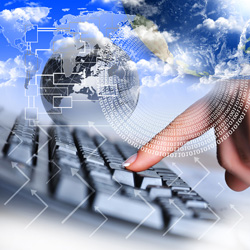Europe's future lies in technology transfer
The European Union boasts many formidable organisations that contribute to technology transfer and strongly support the European Research Area (ERA). These include bodies such as the European Organisation for Nuclear Research, the European Space Agency, and the European Molecular Biology Laboratory. Seven such prestigious intergovernmental organisations participated in an important conference on technology transfer linked to the 2009 EIROforum. The latter is an initiative that helps these organisations support European science by combining resources, facilities and expertise. In this vein, the forum hosted the EU-funded conference on 'Technology transfer and the European Research Area: past, present and future contributions from the EIROforum organisations' (TT-ERA-EIRO). The conference kicked off with a presentation on the goals of EIROforum and the ERA, as well as individual presentations on technology and knowledge transfer by each EIROforum organisation. It featured working sessions on setting up effective partnerships, intellectual property (IP) management from policy drafting to implementation, and technology transfer infrastructure. Another session on financing technology transfer and a related case study took place on the second day of the conference. The event also tackled the European Commission's recommendation on the management of IP in knowledge transfer activities, including codes of practice for universities and public research organisations. Intellectual property rights in technology transfer represented a pivotal topic under the event and are of highly strategic value for the future success of the ERA. In parallel, panel discussions on the European knowledge-based economy shed light on the role of technology transfer. During these discussions, different directorates of the EU had a chance to summarise their findings on main topics related to the forum, such as building up technology transfer structures. Overall, the conference provided a platform to explore new approaches for managing successful and more effective research marketing and technology transfer by exchanging good practices, ideas and experiences. It helped generate discussion about new avenues for successful translation of research into economically viable benefits to boost Europe's economy. Around 100 participants attended the event, all of them actors at the European level in science, engineering, technology transfer, venture capital, industry, IP and policy development. Hailed as a marked success, the conference demonstrated that stronger understanding and networking of the different communities linked to EIROforum are more than essential. It was an excellent platform to lower or remove barriers between communities who have not always had the level of communication or relationship found, for example, in the US. Now, Europe can be proud of its technology-transfer bridges and knowledge-based economy, thanks to initiatives such as this conference.



